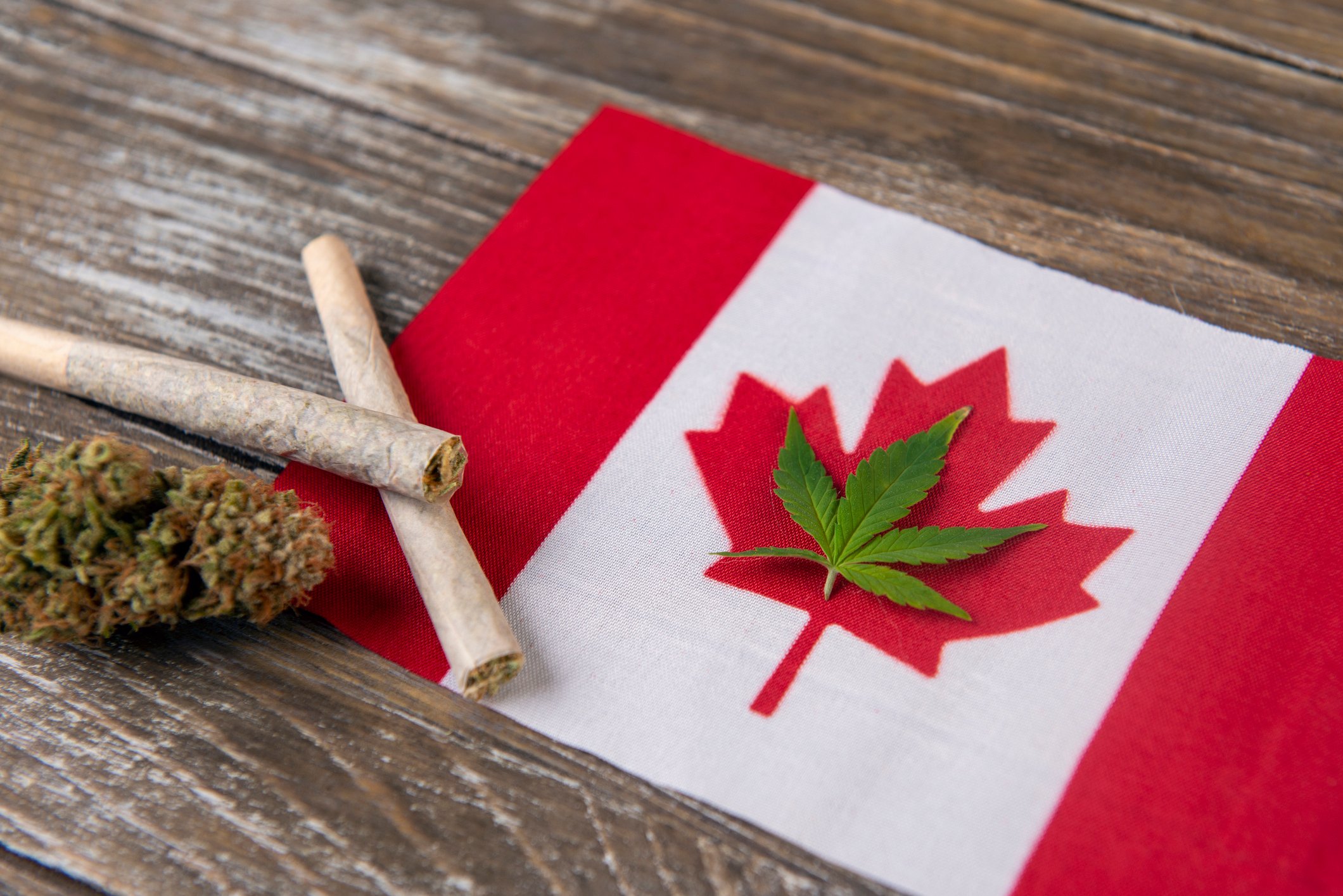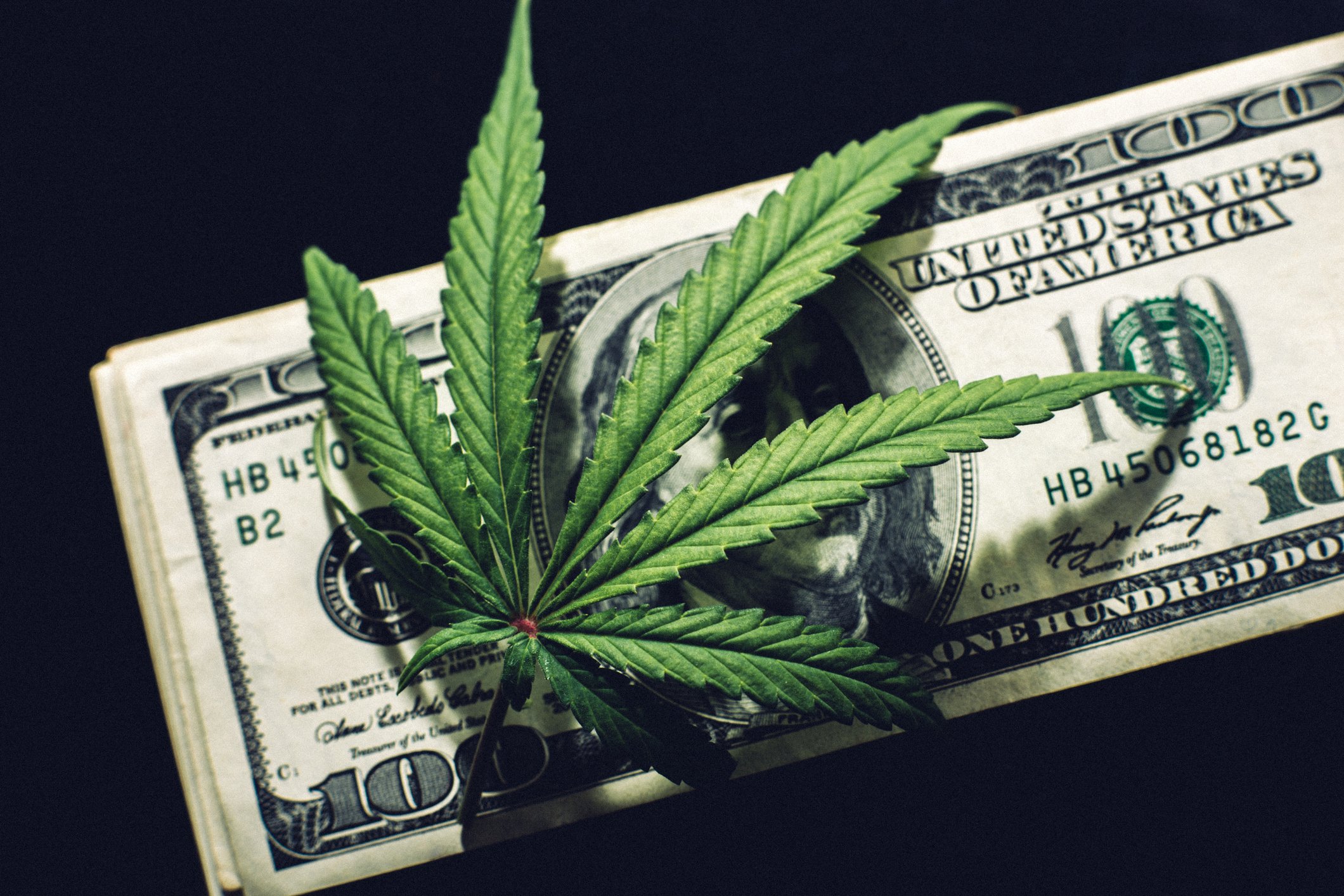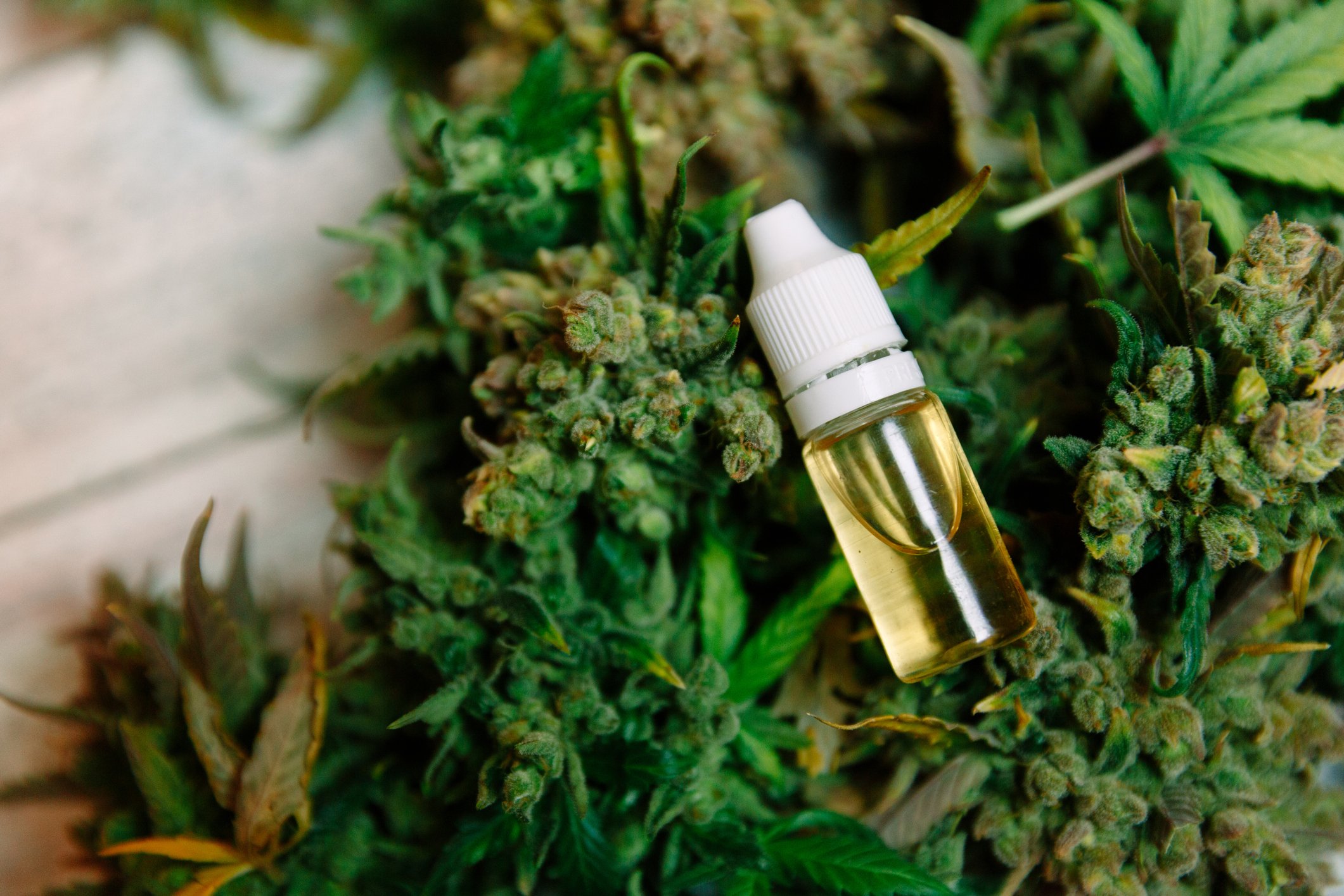In just two weeks, the cannabis industry is set to hit multiple milestones. On Thursday, Oct. 17, it'll mark one year since recreational marijuana went on sale in Canada. It'll also mark the official green flag for derivative regulations to go into place in our neighbor to the north -- derivatives being non-dried-flower products such as edibles, infused beverages, vapes, concentrates, and topicals.
You'd think everything would be going great for the North American pot industry, but it's actually been quite the opposite. With no precedent to legalization in an industrialized country, Canada has been contending with supply shortages of product since day one of legalization nearly a year ago, while select U.S. states have been coping with oversupply and high tax rates. The result has been a resilient black market and a brutal performance for marijuana stocks over the trailing-12-month period.

Image source: Getty Images.
Just how bad have things been? Over the trailing-one-year period, through this past weekend, the first exchange-traded fund focused on cannabis, the Horizons Marijuana Life Sciences ETF, had shed 48% of its value -- and that's including the dividends that were paid to shareholders. Pure-play pot stocks that were listed publicly as of one year ago are down anywhere from 20% to nearly 90% almost across the board.
Yet, there were a few surprises. Excluding businesses that'll only generate a small portion of their annual sales from marijuana (e.g., Scotts Miracle-Gro), as well as those that weren't trading publicly for the entire 12-month period, three marijuana stocks stood out from the pack and have pushed substantially higher.
Innovative Industrial Properties: Up 98%
When it comes to outperforming pure-play marijuana stocks, there's cannabis real estate investment trust (REIT) Innovative Industrial Properties (IIPR +0.35%) and everyone else. While a number of brand-name pot stocks have been halved or quartered by Wall Street, Innovative Industrial Properties has practically doubled over the trailing year.
The beauty of IIP, as the company is also known, is the simplicity and predictability of its business model. Like a typical REIT, Innovative Industrial seeks to acquire land and buildings, then lease out these assets for an extended period of time, thereby reaping the rewards of ongoing rental income. But in IIP's case, it's also about acquiring and leasing medical cannabis grow farms and processing sites. To date, the company has acquired 31 properties in a dozen U.S. states. That's up from the 11 properties it began the year with, and demonstrates just how aggressive IIP has been in 2019.

Image source: Getty Images.
But it's the predictability of Innovative Industrial's business model that has Wall Street swooning. The weighted-average remaining lease length on its properties is 15.9 years, with a current yield on invested capital of 14.5%. Put in another context, the company should be able to net a complete payback on its $293.1 million in invested capital in roughly five years.
Perhaps the only true flaw to IIP's model at the moment is the need to issue common stock to raise capital in order to acquire new properties. This need for somewhat regular dilution is something to keep in mind if investing in Innovative Industrial Properties.
Village Farms International: Up 67%
Another top performer over the past year is British Columbia-based Village Farms International (VFF 1.22%). Despite Village Farms' stock being volatile, shares of the company are up a cool 67% over the trailing year. The surge in its share price looks to be tied to strong execution with its cannabis joint venture, its push into hemp, and the stability provided by its fallback vegetable operations.
In 2017, Village Farms partnered up with Emerald Health Therapeutics to create Pure Sunfarms. The joint venture has acquired two facilities (1.1. million square feet apiece) from Village Farms that'll each be used to grow at least 75,000 kilos of marijuana per year, or 150,000 kilos in total. The Delta 3 facility is already complete and operating at full run-rate capacity, with the Delta 2 facility expected to be operating at full run-rate capacity by the second half of next year. Considering Village Farms' three decades of experience in growing vegetables, its steadiness of execution thus far has clearly impressed Wall Street.

Image source: Getty Images.
This is also a company that's made a major push into the hemp realm. As you may be aware, the signing of the farm bill in December 2018 legalized the production of industrial hemp and hemp-derived cannabidiol (CBD), CBD being the cannabinoid best known for its perceived medical benefits that doesn't get users high. The potential for CBD sales growth in the U.S. is off the charts, which is what's encouraged Village Farms to enter into two hemp-focused joint ventures. More than 700 acres of hemp have been planted so far this year, with processing of hemp biomass expected to yield high-margin CBD.
Lastly, even though Village Farms' vegetable business has been a bit of a drag of late, it often provides predictability in sales and cash flow for the company. Add up these factors and you have the formula for a top performer.
Charlotte's Web Holdings: Up 21%
Maybe unsurprisingly, the third and final pot stock to have gained over the trailing year is another company with a focus on hemp: Charlotte's Web Holdings (CWBHF +0.00%). While its peers have stumbled, Charlotte's Web has woven itself a healthy 21% gain over the trailing-12-month period.
The excitement surrounding this company has to do with the potential for CBD products in the United States, as I alluded before. The latest report from the Brightfield Group calls for $23.7 billion in U.S. CBD sales by 2023, representing a compound annual growth rate of more than 100% between 2018 and 2023. Considering that Charlotte's Web is the market share leader in CBD products, investors have been quick to put two and two together.

Image source: Getty Images.
Charlotte's Web has also done a bang-up job of expanding its reach. After beginning the year with its topical products in 3,680 retail doors, the company recently landed a deal with Kroger to place its CBD topicals in 1,350 stores in 22 states, pushing its reach to north of 8,000 U.S. retail locations.
The company has also been active on the hemp-planting front. After planting 300 acres in 2018, Charlotte's Web announced a 187% increase in planting, to 862 acres during the second quarter. The demand for CBD products is clearly there, and the margins in these derivatives are far too juicy for the company to pass up.
Lastly, it's worth mentioning that Charlotte's Web has been operationally profitable for a number of quarters, placing it among rarified air in the cannabis space.







